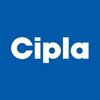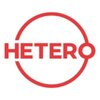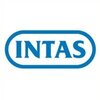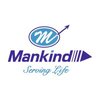
i
Dr. Reddy's
Filter interviews by
Dr. Reddy's Assistant Manager Operations Interview Questions and Answers
Dr. Reddy's Assistant Manager Operations Interview Experiences
1 interview found
(1 Question)
- Q1. OEE implementation, SAP implementation,
Interview Preparation Tips
Interview questions from similar companies

Assistant Manager Operations Interview Questions & Answers
Aurobindo Pharmaposted on 25 Mar 2025
- Q1. What ís ÀPQA
- Ans.
APQA stands for Advanced Product Quality Planning, a structured approach to ensure product quality from design to production.
APQA is a proactive quality planning process used in manufacturing.
It involves cross-functional teams to identify potential quality issues early.
Key elements include defining customer requirements and setting quality goals.
Examples of tools used in APQA are FMEA (Failure Mode and Effects Analysis
- Q2. Whàt ís dístíllàte impuríty
- Ans.
Distillate impurity refers to unwanted substances in a distillate product, affecting purity and quality.
Distillate impurities can include residual solvents, unreacted materials, or by-products.
For example, in petroleum distillation, sulfur compounds can be considered impurities.
In the production of essential oils, water or plant material can contaminate the distillate.
Impurities can affect the boiling point and overall
- Q3. What is meant by CAPÀ
- Ans.
CAPA stands for Corrective and Preventive Action, a process to identify and eliminate causes of non-conformities.
CAPA is crucial in quality management systems to ensure compliance and continuous improvement.
Corrective Action addresses existing issues, e.g., fixing a defect in a product.
Preventive Action focuses on eliminating potential issues, e.g., implementing training to avoid future errors.
CAPA is often used in ind...
- Q4. Éxplain Solvent recovery
- Ans.
Solvent recovery is a process to reclaim solvents from waste streams for reuse, enhancing sustainability and reducing costs.
Solvent recovery involves distillation, adsorption, or membrane separation techniques.
Example: In paint manufacturing, solvents used can be recovered and reused, minimizing waste.
It reduces environmental impact by decreasing hazardous waste disposal.
Industries like pharmaceuticals and chemicals of...
- Q5. What is operatión óf Fluídbed dryer
- Ans.
A fluid bed dryer uses hot air to suspend and dry particles, ensuring uniform drying and efficient heat transfer.
Principle: Utilizes a stream of hot air to lift and suspend particles, creating a fluidized state.
Uniform Drying: Ensures even heat distribution, preventing overheating and ensuring consistent moisture content.
Applications: Commonly used in pharmaceuticals for drying granules, in food processing for drying p...
- Q6. What is PSD
- Ans.
PSD stands for Product Service Design, focusing on creating effective and user-friendly products and services.
PSD involves understanding user needs and preferences.
It includes iterative design processes, such as prototyping and testing.
Example: A tech company using PSD to develop a new app interface.
Collaboration between cross-functional teams is essential in PSD.
User feedback is crucial for refining products and servi
- Q7. What ís sàfé óperàtion óf forklift?
- Ans.
Safe operation of forklifts involves following guidelines to prevent accidents and ensure efficient material handling.
Conduct regular inspections before use to check for mechanical issues.
Ensure operators are trained and certified to operate forklifts.
Always wear appropriate personal protective equipment (PPE) such as hard hats and safety shoes.
Maintain clear visibility and use horns or alarms when reversing.
Load the f...
- Q8. What ís safe velocity during pumpiñg of Sólvent
- Ans.
Safe velocity during solvent pumping ensures efficient flow while minimizing risks of leaks and equipment damage.
Safe velocity varies based on solvent type; for example, water can be pumped at higher velocities than viscous solvents like glycerin.
Typical safe velocities range from 1 to 3 meters per second for most solvents to prevent cavitation and wear.
Consider the pump specifications; centrifugal pumps may handle hig...
- Q9. What ís Éleçtrícal s?hock
- Q10. What is Validation?
- Ans.
Validation is the process of ensuring a system or product meets specified requirements and functions correctly in its intended environment.
Validation ensures that a product meets the needs of the user and fulfills its intended purpose.
It involves testing and evaluating the system against predefined criteria.
For example, in software development, validation checks if the software meets user requirements through user acce...
- Q11. What àre the QMS solvents
- Ans.
QMS solvents are essential components in Quality Management Systems, ensuring compliance and efficiency in operations.
QMS stands for Quality Management System, which includes processes and procedures to ensure quality.
Solvents in QMS refer to tools and methodologies used to achieve quality objectives.
Examples of QMS solvents include Six Sigma, Lean Management, and ISO standards.
These solvents help in identifying ineffi
- Q12. Whàt is StaticElectríçíty
- Ans.
Static electricity is the buildup of electric charge on the surface of objects, often caused by friction.
Occurs when two materials rub against each other, transferring electrons.
Common examples include rubbing a balloon on hair or shuffling feet on a carpet.
Can cause small shocks when touching metal objects after buildup.
Static electricity can attract lightweight objects, like paper or dust.
- Q13. What is LDM?
- Ans.
LDM stands for Local Distribution Management, focusing on efficient distribution of resources within a specific area.
LDM optimizes the flow of goods and services in a localized area.
It involves managing inventory levels to meet local demand efficiently.
Example: A retail store using LDM to ensure popular products are always in stock.
LDM can enhance customer satisfaction by reducing delivery times.
It often utilizes techn...
- Q14. What is Pressure reaction.
- Ans.
Pressure reaction refers to the response of materials or systems to changes in pressure, affecting their physical and chemical properties.
Pressure reactions can occur in chemical processes, such as the Haber process for ammonia synthesis, where high pressure increases yield.
In materials science, pressure can alter the phase of substances, like turning graphite into diamond under extreme conditions.
Biological systems ca...
- Q15. Oxygen percentage duríñg vessel entry?
- Ans.
Oxygen percentage during vessel entry should be monitored to ensure safety and compliance with regulations.
Oxygen levels should typically be between 19.5% and 23.5% for safe entry.
Below 19.5% indicates potential asphyxiation risk; above 23.5% poses fire hazards.
Regular monitoring with calibrated oxygen sensors is essential.
Example: In confined spaces like tanks, oxygen levels must be checked before entry.

I applied via Naukri.com and was interviewed before Jun 2023. There was 1 interview round.
(2 Questions)
- Q1. Self introduction
- Q2. Media fill study in detail

Assistant Manager Operations Interview Questions & Answers
Ciplaposted on 10 Sep 2023
I applied via Recruitment Consulltant and was interviewed before Sep 2022. There were 3 interview rounds.

(1 Question)
- Q1. Experience on relevant
(1 Question)
- Q1. Notice period and salary

Interview Questionnaire
1 Question
- Q1. About subject of my department related

I applied via Referral and was interviewed before Feb 2021. There were 3 interview rounds.

(1 Question)
- Q1. Process Validation and cleaning validation related
(1 Question)
- Q1. Why are you looking for a change?
Interview Preparation Tips

Assistant Manager Interview Questions & Answers
Alembic Pharmaceuticalsposted on 13 Jun 2022
I applied via Approached by Company and was interviewed before Jun 2021. There were 2 interview rounds.

(1 Question)
- Q1. Basic about job experience
Interview Preparation Tips

Assistant Manager Interview Questions & Answers
Zydus Lifesciencesposted on 10 Jul 2017
I appeared for an interview before Jul 2016.
Interview Questionnaire
2 Questions
- Q1. Related to experience
- Q2. System based test
Interview Preparation Tips
Experience: Multiple choice questions related to your experience
Tips: Link will send to personal mail
Duration: 30 minutes
Total Questions: 30
Round: Technical Interview
Experience: By department HOD
Round: Behavioural Interview
Experience: Psychometric test

Interview Preparation Tips
Duration: 1 hour 30 minutes
Total Questions: 90
College Name: VNIT Nagpur

I appeared for an interview in Sep 2016.
Interview Questionnaire
3 Questions
- Q1. What is the difference between pneumatic and hydraulic?
- Ans.
Pneumatic systems use compressed air to transmit power, while hydraulic systems use fluid to transmit power.
Pneumatic systems use air as the working fluid, while hydraulic systems use liquid.
Pneumatic systems are typically used for lighter loads and faster movements, while hydraulic systems are used for heavier loads and slower movements.
Pneumatic systems are generally less expensive and easier to maintain compared to ...
- Q2. List the types of welding.
- Ans.
There are several types of welding techniques used in various industries.
Arc welding: Uses an electric arc to create heat and join metals.
MIG welding: Uses a consumable wire electrode and shielding gas to join metals.
TIG welding: Uses a non-consumable tungsten electrode and inert gas to join metals.
Spot welding: Joins metal sheets by applying pressure and heat at specific points.
Flux-cored arc welding: Similar to MIG w...
- Q3. What is the use of CNC machine and lathe machine?
- Ans.
CNC and lathe machines are used for precision cutting and shaping of materials.
CNC machines use computer programming to control the cutting tools, allowing for highly precise and complex shapes to be created.
Lathe machines are used for turning and shaping cylindrical objects, such as metal rods or wooden dowels.
Both machines are commonly used in manufacturing and engineering industries.
Examples of products made using C...
Interview Preparation Tips
Tips: Most of the questions were taken from indiabix.com.
Duration: 1 hour 30 minutes
Round: Group Discussion
Tips: Try to speak and communicate effectively.
Duration: 10 minutes
Round: Technical + HR Interview
Tips: For production branch people, please study thoroughly about manufacturing processes, CNC programming and industrial engineering key terms.
Dr. Reddy's Interview FAQs
Tell us how to improve this page.
Dr. Reddy's Interviews By Designations
- Dr. Reddy's Team Member Interview Questions
- Dr. Reddy's Territory Manager Interview Questions
- Dr. Reddy's Area Sales Manager Interview Questions
- Dr. Reddy's Medical Representative Interview Questions
- Dr. Reddy's Analytical Scientist Interview Questions
- Dr. Reddy's Territory Business Manager Interview Questions
- Dr. Reddy's Management Trainee Interview Questions
- Dr. Reddy's Assistant Manager Interview Questions
- Show more
Interview Questions for Popular Designations
- Operations Executive Interview Questions
- Operations Manager Interview Questions
- Team Lead Operations Interview Questions
- Operations Associate Interview Questions
- Senior Executive Operations Interview Questions
- Operations Analyst Interview Questions
- Senior Operations Manager Interview Questions
- Operations Engineer Interview Questions
- Show more
Interview Questions from Similar Companies
Fast track your campus placements
Dr. Reddy's Assistant Manager Operations Reviews and Ratings
based on 1 review
Rating in categories
|
Team Member
3.9k
salaries
| ₹1.9 L/yr - ₹9.7 L/yr |
|
Analytical Scientist
820
salaries
| ₹3.6 L/yr - ₹12.5 L/yr |
|
Assistant Manager
772
salaries
| ₹4.4 L/yr - ₹14.5 L/yr |
|
Senior Team Member
524
salaries
| ₹3.8 L/yr - ₹13 L/yr |
|
Team Lead
453
salaries
| ₹7 L/yr - ₹24.4 L/yr |

Cipla

Lupin

Zydus Lifesciences

Sun Pharmaceutical Industries
- Home >
- Interviews >
- Dr. Reddy's Interview Questions >
- Dr. Reddy's Assistant Manager Operations Interview Questions
















